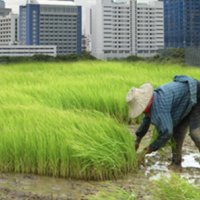Economic policy shifts in Sri Lanka: The post-conflict development challenge

The end of the long civil war in Sri Lanka in 2009 generated widespread expectations of a peace dividend that would enable Sri Lanka to embark on a period of sustained economic growth, but recent developments have dampened that optimism, rekindling fears that Sri Lanka’s tale of missed opportunities may continue. After showing remarkable resilience during decades of war and conflict the Sri Lankan economy has failed to capitalise on the window of opportunity presented by the end of the military conflict. In the aftermath of military victory, there has been a sharp reversal of trade liberalisation and a marked shift back towards nationalist-populist state-centred economic policies, reflecting the pressures of resurgent nationalism, an unprecedented concentration of political power in a small ruling group, and the influence of some powerful vested interests. Unfortunately a return to the failed past policies of inward oriented development strategies offers no viable solutions for the problems confronting small, capital and resource poor countries in today’s globalised world. Sri Lanka must change both its political practices and economic policies drastically and urgently to cope with the huge development challenges facing it in an environment of global economic turbulence.
Updated: 27 July 2024/Responsible Officer: Crawford Engagement/Page Contact: CAP Web Team






